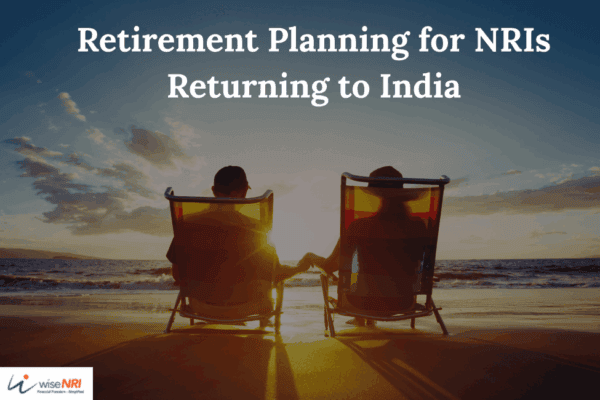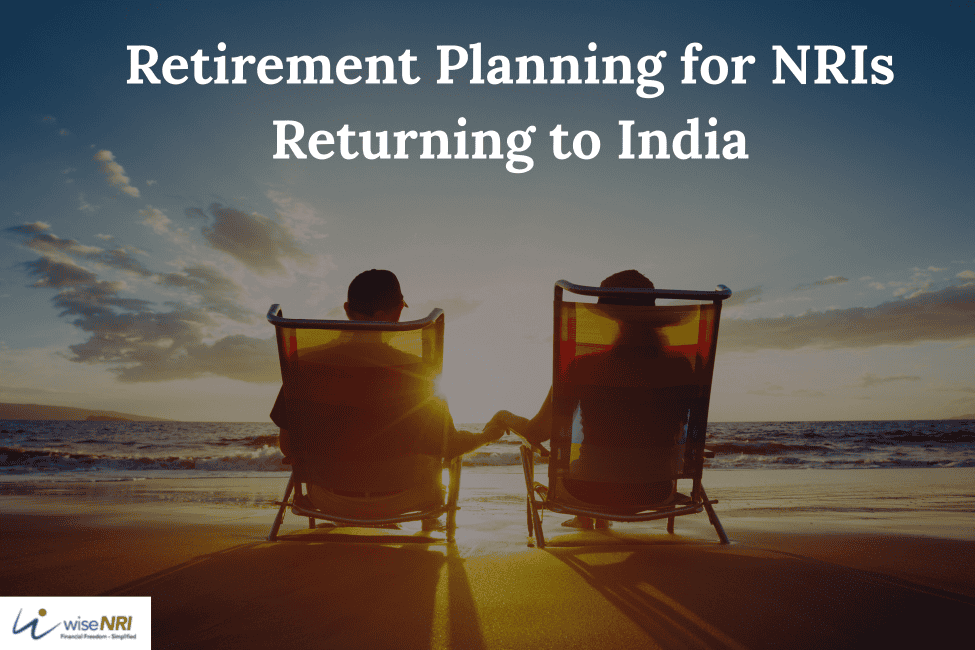If you’ve lived abroad and feel that pull to come back to India, still you are surely not alone. Many of us dream of returning home—being near family, slipping back into familiar routines, and enjoying a slower, more peaceful life. But turning that dream into reality takes planning, especially when your life and finances are spread across countries.

Must Read – How Much Will NRI Need To Retire?
This blog is designed to make your journey easier. It walks you through the important points to consider for a financially secure and worry-free retirement planning for returning NRIs.
Start With Your Retirement Vision
Before you get into the numbers, let’s talk about your vision. What does your perfect retirement Plan look like?
- Do you want to live in India full-time or split your year between countries?
- Are you picturing a bustling city or a quiet town?
- Where will your money come from? Will it be from your savings in India, your overseas funds, or both?
Having a clear picture of what you want will help you figure out exactly how much you need for retirement and where to put your money.
Understand Tax Rules When NRIs Return to India
When you move back, your tax status changes. The Indian government looks at how many days you spend in the country to decide if you’re a resident. Once you are, your worldwide income might become taxable in India.
Here are a few things to keep in mind:
- Your bank accounts: Your special NRI bank accounts (like NRE and FCNR) are tax-free while you’re an NRI. But once you move back, you’ll need to convert them to regular resident accounts. The interest you earn on NRO accounts is always taxable in India, so that’s something to remember.
- Double trouble: Don’t worry about paying taxes in two places. India has agreements with many countries (called DTAA) to help you avoid being taxed twice on the same income.
Build a Strong Retirement Corpus in India
- To enjoy a secure retirement, your income should grow as living costs rise. Here are some good ways to boost your retirement savings in India:
- Mutual Funds: “Mutual funds let you invest in different places at once—stocks, bonds, and more—without any hassle. They can help your money grow steadily over the long run and keep you better protected from inflation
- NPS (National Pension System): Through NPS you can get a different asset class exposure like equity,corporate bond, alternative asset and later you can get the monthly pension out of it. It’s a great option to go with specially for NRI.
- Fixed Deposits & Bonds: These are safer choices for those who prefer not to take risks, but they might not give you the same high returns.
- Real Estate: A house is a great asset, but try not to put all your savings into property. You’ll want to have some liquid cash too.
A simple tip: Think of your money in different “buckets.” Keep some for immediate needs (like in a savings account), some for medium-term goals (in a debt fund), and the rest for long-term growth (in stocks or equity funds).

Must Read –6 Tips to Help NRIs Boost Their Retirement Savings
Don’t Forget About Healthcare
- Healthcare expenses are rising quickly across India, and an unforeseen medical issue can drain your retirement corpus faster than expected.
- Get health insurance in India: It’s a good idea to buy suitable health insurance in India before you retire, as your overseas policy may not fully cover your healthcare needs here.
- Create a medical fund: Its always better to have a separate medical corpus for your retirement because there are certain exclusions in the health insurance policy which are not covered into it. Ideally, this reserve should be around ₹15–20 lakhs, depending on your health condition.”
- Sort Out Your Family’s Future With assets in different countries, it’s important to make sure your loved ones can easily inherit them.
- Write a will: Make sure you have a clear will that covers all your assets, both in India and abroad.
- Joint accounts: Consider having joint ownership of assets with your spouse or children to make things simpler down the line.
Handle Currency & Inflation Risks Smartly
When you’re planning, remember two things:
- Currency: The Indian Rupee usually gets weaker against major currencies. This can be a good thing if you’re bringing money from abroad.
- Inflation: Prices in India tend to rise by about 6-7% on average. Your investments need to grow faster than that to keep your purchasing power.
A good way to handle this is to have some investments in India and some abroad.
Don’t Hesitate to Take Professional Guidance
It’s not always easy to understand tax laws, exchange regulations, and estate planning as an NRI. Getting guidance from the right advisor can save you time, stress, and confusion
The Bottom Line
Retiring in India is a beautiful goal, and with a bit of planning, it’s completely doable. Define your goals, know the rules, grow your savings, and safeguard your health—these steps can help you enjoy a relaxed and financially stable retirement. Welcome home!
This post is written by our team member Monika Babani.

